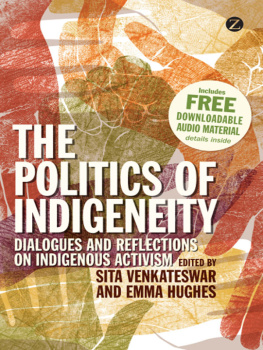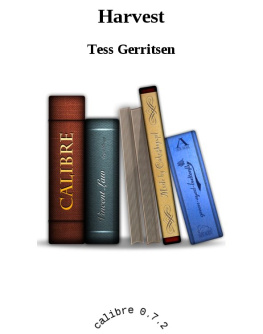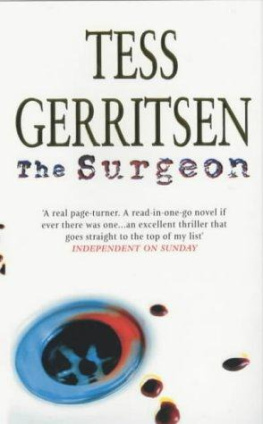Tess Lea - Wild Policy: Indigeneity and the Unruly Logics of Intervention
Here you can read online Tess Lea - Wild Policy: Indigeneity and the Unruly Logics of Intervention full text of the book (entire story) in english for free. Download pdf and epub, get meaning, cover and reviews about this ebook. year: 2020, publisher: Stanford University Press, genre: Politics. Description of the work, (preface) as well as reviews are available. Best literature library LitArk.com created for fans of good reading and offers a wide selection of genres:
Romance novel
Science fiction
Adventure
Detective
Science
History
Home and family
Prose
Art
Politics
Computer
Non-fiction
Religion
Business
Children
Humor
Choose a favorite category and find really read worthwhile books. Enjoy immersion in the world of imagination, feel the emotions of the characters or learn something new for yourself, make an fascinating discovery.

Wild Policy: Indigeneity and the Unruly Logics of Intervention: summary, description and annotation
We offer to read an annotation, description, summary or preface (depends on what the author of the book "Wild Policy: Indigeneity and the Unruly Logics of Intervention" wrote himself). If you haven't found the necessary information about the book — write in the comments, we will try to find it.
Tess Lea: author's other books
Who wrote Wild Policy: Indigeneity and the Unruly Logics of Intervention? Find out the surname, the name of the author of the book and a list of all author's works by series.
Wild Policy: Indigeneity and the Unruly Logics of Intervention — read online for free the complete book (whole text) full work
Below is the text of the book, divided by pages. System saving the place of the last page read, allows you to conveniently read the book "Wild Policy: Indigeneity and the Unruly Logics of Intervention" online for free, without having to search again every time where you left off. Put a bookmark, and you can go to the page where you finished reading at any time.
Font size:
Interval:
Bookmark:

Anthropology of Policy
Cris Shore and Susan Wright, editors
Wild Policy
Indigeneity and the Unruly Logics of Intervention
Tess Lea
Stanford University Press
Stanford, California
Stanford University Press
Stanford, California
2020 by the Board of Trustees of the Leland Stanford Junior University. All rights reserved.
No part of this book may be reproduced or transmitted in any form or by any means, electronic or mechanical, including photocopying and recording, or in any information storage or retrieval system without the prior written permission of Stanford University Press.
Printed in the United States of America on acid-free, archival-quality paper
Library of Congress Cataloging-in-Publication Data
Names: Lea, Tess, author.
Title: Wild policy : indigeneity and the unruly logics of intervention / Tess Lea.
Other titles: Anthropology of policy (Stanford, Calif.)
Description: Stanford, California : Stanford University Press, 2020. | Series: Anthropology of policy | Includes bibliographical references and index.
Identifiers: LCCN 2020008438 (print) | LCCN 2020008439 (ebook) | ISBN 9781503612655 (cloth) | ISBN 9781503612662 (paperback) | ISBN 9781503612679 (ebook)
Subjects: LCSH: Aboriginal AustraliansGovernment relations. | Aboriginal AustraliansGovernment policy. | Aboriginal AustraliansSocial conditions. | AustraliaSocial policy.
Classification: LCC DU124.G68 L43 2020 (print) | LCC DU124.G68 (ebook) | DDC 323.1199/159dc23
LC record available at https://lccn.loc.gov/2020008438
LC ebook record available at https://lccn.loc.gov/2020008439
Cover design: Rob Ehle
Contents
Figures
Acknowledgments
I have everyones problem with acknowledgments: how to condense all the obligations racked up in the years of thinking, talking, listening, reading, and gleaning, that thisthat anybook gathers into itself.
First and foremost, I am in debt to John Singer. When I first stammered out my rough proposal based vaguely on what I did not want to do, having no more precise an outline, he took a punt. Every year since, Ive learned something new. Most of all, I have learned about perseverance and courage where there could so easily be defeat or rage. With all my heart, John, thank you for trusting me.
John does not work alone. To the people at Nganampa Health, and especially Paul Torzillo and Stephan Rainow, my profound appreciation for your support through thick and thin. The inspirational architect and policy critic Paul Pholeros died before I could get this book into a form he might have approved of. With others, I miss him daily. Early on at Groote Eylandt, Andy Irvine and Jeff Green, Richard Preece and Tony Wurramarrba, separately permitted my attention on the tumultuous SIHIP times; Ben Hall hosted me and checked details; and before I was evicted, David Ritchie and Jim Davidson enabled brief glimpses into bureaucratic backrooms. Justin OBrien, Yvonne Margarula, and the Gundjeihmi Aboriginal Corporation have been fundamental to my re-seeing the everyday militarism infusing our lifeworlds and the tolls being paid. I hope our collaborative journey continues through the challenges ahead.
The Karrabing Film Collective tolerated my bad catering, even that time when we ran out of meat and I pretended couscous was a substitute (well, Moonbill had something to say about that rubbish). May the work of Trevor Bianamu, Gavin Bianamu, Sheree Bianamu, Telish Bianamu, Cameron Bianamu, Natasha Bigfoot, Katrina Bigfoot, Kelvin Bigfoot, Marcia Bigfoot, Rex Edmunds, Chloe Gordon, Claudette Gordon, Miles Gordon, Claude Holtze, Reggie Jorrock, Marcus Jorrock, Ethan Jorrock, Arthur Jorrock, Melissa Jorrock, Patsy-Ann Jorrock, Alethia Jorrock, Roblin Lane, Danielle Lane, Darryll Lane, Loraine Lane, Sharon Lane, Serena Lane, Paul Lane, Akaydia Lee, Angela Lewis, Cecilia Lewis, Elizabeth Povinelli, Quinton Shields, Rex Sing, Shannon Sing, Aiden Sing, Kieran Sing, Cassie Sing, Alice Wainbirri, Joslyn McDonald, Daphne Yarrowin, Sandra Yarrowin, Claudia Yarrowin, Roy Yarrowin, Georgia Yarrowin, Linda Yarrowin, and Roger Yarrowin continue to change hearts and minds the world over. To Bush Beth, aka Elizabeth Povinelli: if I could be half as true as you, Id be a genius. I am up for more years of your high expectations and potty-mouthed debate. You in?
My work has been supported by the intellectual generosity and inspiration of past and present colleagues in the Department of Gender and Cultural Studies at the University of Sydney. Being among you is a privilege. And to all the behind-the-scenes professionals who support academics and students, my profound gratitude for your being so good at what you do, even as your roles get harder and more precarious.
Christen Cornell, Kirsty Howey, Thomas Michel, Stuart Rollo, and Liam Grealythank you for reading choked drafts, for your own inspiring scholarship, and for encouragement. (I love my sachet samples.) Barbara Caine, Danielle Celermajer, Glenda Sluga, Julia Klindt, Katherine Biber, Claire Monagle, Moira Gatens, and Helen Groth, for deadlines, feedback, and unstinting support; Sascha Callaghan, Ian Buchanan, Jodi Frawley, and Jennifer Biddle, for lacking doubt and offering always-needed prompts; Allan McConnell, for sharpening my sense of policys natural incoherence; Melinda Barbagallo, for maps; Joel Tarling, for figures, and Sean Fuller, for attentive eyes; and I cannot forget Jesse Boag, who treats my books as gay dcor and demanded a refresh.
To Cris Shore and Susan Wright, editors of the Anthropology of Policy book series, my deepest appreciation for your vision and trail making; Don Brenneis, for a careers worth of encouragement; and Michelle Lipinski, for the kind of stewardship I wish all writers may experience. My thanks also to my unknown reviewers for your acute and generous readings.
There are many more people I should thank (all the Indigenous analysts; the post- and undergraduate students, the lawyers, engineers, architects, and tradespeople; the Infrastructural Inequalities reading group, caf operators, dog walkers, and gym friends; inspiring academics; folk who invited my talks and forced gossamer thoughts to cohere... ), but time and a strict character limit compel a stop. A Queen Elizabeth II Fellowship from the Australian Research Council (DP1094139) and support from the Henry Halloran Trust to establish the Housing for Health Incubator proved critical. A collaboration with Astrida Neimanis, Caren Kaplan, and Jennifer Terry exploring Everyday Militarisms as an intersectional feminist project has reoriented my analysis profoundly, as did the book that precedes this, Darwin (Lea 2014), which forced me to properly focus on the military underpinnings of continuing settler occupation.
My final thanks go to all the dogs who have ever hounded me to walk, snuggle, and play, and my nonfur family, Elise, Daniel, and Greg Moo, for their continuing love. They build planes, cook stir-fries, fix electrical systems, speak Spanish. They are clever and kind. They are the best part of me.
Interlude I
When John Singer remembers his childhood on the Siassi Islands, a volcanic archipelago off the northern coast of Papua New Guinea, his thoughts fly first to the mens headdresses, with their spires of feathers stripped from forest birds, and on to the thrum of male dancing. He remembers bouncing quills, valuable shells sewn into splayed necklaces, wooden shields warded with spirit figures; the dung and grunt of pigs; meals of fish, pork, sweet potato, taro; and the thick, sweet taste of coconut milk. His fragmented memories are those of a young childs: all sounds, colors, smells, and tastes. But talk of the whys and wherefores of his being there, a young boy from the A
Font size:
Interval:
Bookmark:
Similar books «Wild Policy: Indigeneity and the Unruly Logics of Intervention»
Look at similar books to Wild Policy: Indigeneity and the Unruly Logics of Intervention. We have selected literature similar in name and meaning in the hope of providing readers with more options to find new, interesting, not yet read works.
Discussion, reviews of the book Wild Policy: Indigeneity and the Unruly Logics of Intervention and just readers' own opinions. Leave your comments, write what you think about the work, its meaning or the main characters. Specify what exactly you liked and what you didn't like, and why you think so.





